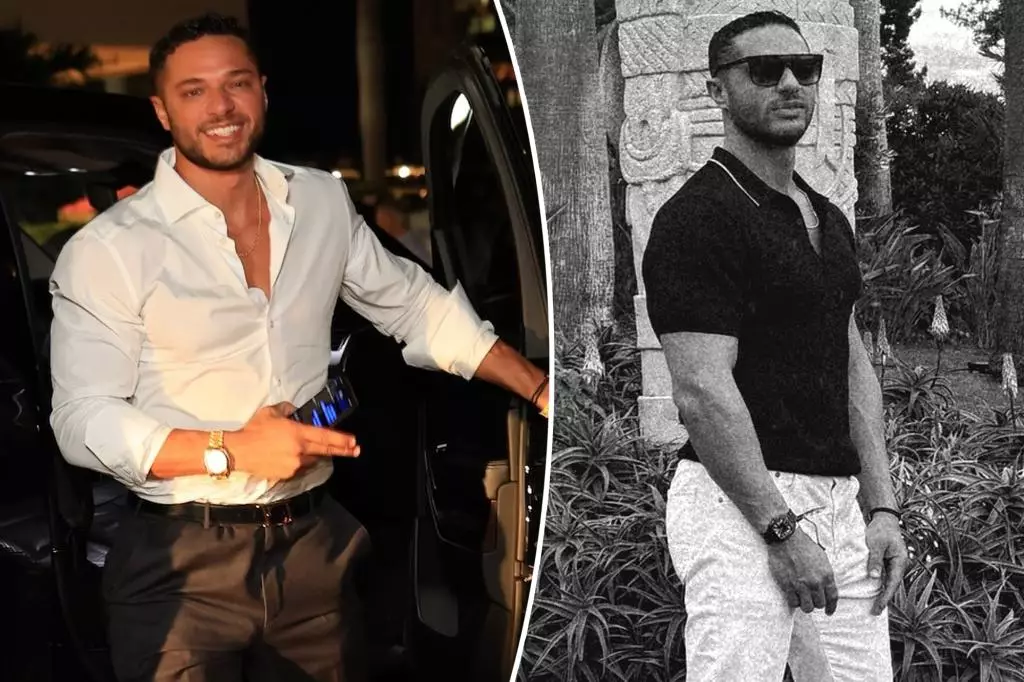In the high-stakes world of Miami’s elite social scene, few names have been as controversial as Daniel Liburdi. Known for hosting lavish parties that drew the attention of the rich and famous, Liburdi has become a symbol of the city’s opulence. However, this reputation took a drastic turn when he and three associates were indicted by the U.S. Attorney’s Office for conspiracy to commit bank fraud and money laundering. The allegations detail a complex scheme that has not only raised eyebrows but has also cast a shadow over the glamorous lifestyle he portrayed on social media.
Liburdi, 35, gained fame in Miami’s social circles with his ostentatious gatherings, held in extravagant mansions on Hibiscus Island, some of which are valued at astronomical prices. The most notable acquisition, a mansion that exceeds $40 million, showcases the wealth and lifestyle Liburdi has flaunted. His Instagram is a mixed bag of eye-catching images, displaying everything from yacht experiences in Monaco to stunning pool parties, often featuring a plethora of glamorous guests. Yet, behind this facade lies troubling allegations; it is claimed that Liburdi acquired his wealth through deceitful practices that allegedly siphoned off over $128 million.
According to the indictment, Liburdi and his co-conspirators orchestrated an elaborate scheme involving fraudulent applications for merchant processing accounts from U.S. financial institutions. By creating these accounts, the group purportedly operated a high-risk e-commerce business, utilizing questionable sales techniques to acquire funds through illicit means. The misuse of credit and debit card transactions not only facilitated their operations but also contributed to the purchase of high-value properties.
The implications of the indictment are severe. If found guilty, Liburdi and his associates face substantial prison sentences and the potential forfeiture of their illicit gains, including luxury homes and other assets procured through the alleged fraud. Such a fall from grace serves as a poignant reminder of the thin line between affluence and legality in the high-pressure environment of wealth and status.
Liburdi’s antics reportedly left many of his affluent neighbors in dismay. Complaints mounted regarding the noisy, extravagant events taking place at his properties, leading to multiple law enforcement interventions. Residents voiced concerns that Liburdi’s parties weren’t just personal gatherings but rather commercial events complete with professional sound systems and third-party promotions. In December, a motion filed by his neighbors highlighted the negative impact of Liburdi’s lifestyle on their community, revealing a stark contrast between his carefree persona and the frustrations felt by those living nearby.
The rise in tensions between Liburdi and his neighbors exemplifies a broader issue within Miami’s luxury real estate. As the city becomes increasingly saturated with wealth and extravagant lifestyles, so too does the concern over how these luxuries are financed and maintained. The disconnect between public persona and private realities can lead to unforeseen consequences, as is evident in Liburdi’s current predicament.
Despite his seemingly spectacular lifestyle, few genuinely know Liburdi outside of his social media presence. Reports suggest he often claimed to stem from a wealthy background, yet his swift rise to affluence raised skepticism among those around him. Sources indicate he may have also owned multiple luxury vehicles, including three Ferraris. This veiled persona combined with extravagant spending patterns laid the groundwork for scrutiny and ultimately legal action.
The case against him, spearheaded by Assistant U.S. Attorney Adam J. Duso, emphasizes the ongoing commitment of authorities to tackle financial crimes within elite circles. While Liburdi dazzled many with his lavish parties and opulent lifestyle, he now stands at the precipice of a daunting legal battle that could bring his world crashing down.
The story of Daniel Liburdi serves as a compelling narrative woven into the fabric of Miami’s elite society. It underscores the discrepancies and repercussions that can arise from living a life steeped in extravagance fueled by deception. Likewise, it prompts reflection on broader societal values surrounding wealth, success, and the ethics of how both are obtained. As Miami continues to attract the rich and famous, tales like Liburdi’s may serve as cautionary tales to those who believe that excess and unaccountability can go unchecked.

